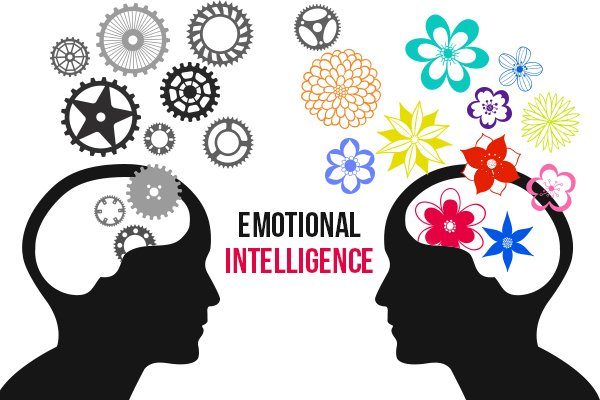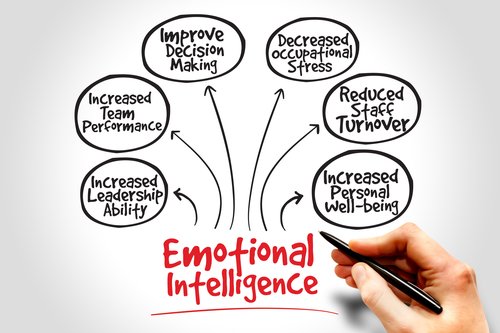In today’s fast-paced business environment, technical skills and expertise alone are not enough to succeed. Emotional intelligence (EI), the ability to recognize, understand, and manage our own emotions as well as the emotions of others, is a critical component of effective business communication. This skill not only enhances interpersonal interactions but also fosters a positive workplace culture and drives organizational success.
What is Emotional Intelligence?
Emotional intelligence refers to the capacity to be aware of, control, and express one’s emotions judiciously and empathetically. It comprises four key components:
- Self-awareness: Understanding your own emotions and how they affect your behavior.
- Self-regulation: Managing your emotions in healthy ways, adapting to changes, and staying in control even in stressful situations.
- Social awareness: Recognizing and understanding the emotions of others, fostering empathy, and considering the dynamics of the workplace.
- Relationship management: Using emotional awareness to effectively manage interactions, resolve conflicts, and build positive relationships.
Why Emotional Intelligence Matters in Business Communication
1. Enhances Interpersonal Relationships

- Empathy: Emotionally intelligent individuals can empathize with colleagues, clients, and stakeholders, understanding their feelings and perspectives. This fosters stronger connections and more meaningful relationships.
- Trust Building: By being aware of and responding appropriately to others’ emotions, EI promotes trust and open communication, which are essential for effective teamwork.
2. Improves Conflict Resolution
- Managing Emotions: EI helps individuals manage their emotions during conflicts, preventing escalation and promoting constructive dialogue.
- Mediation Skills: Emotionally intelligent leaders are better equipped to mediate conflicts, facilitating resolutions that are satisfactory for all parties involved.
3. Boosts Leadership Effectiveness
- Inspirational Leadership: Leaders with high EI can inspire and motivate their teams by connecting with them on an emotional level, understanding their needs, and providing the support they require.
- Decision Making: EI aids leaders in making more informed decisions by considering the emotional impacts on their team and the broader organization.
4. Facilitates Effective Teamwork
- Collaboration: Teams with emotionally intelligent members communicate more effectively, share ideas openly, and collaborate more efficiently, leading to better outcomes.
- Positive Work Environment: EI contributes to a positive work environment where team members feel valued and respected, boosting morale and productivity.
5. Enhances Customer Relations
- Understanding Customer Needs: EI enables employees to better understand and respond to customers’ emotional states, leading to improved customer service and satisfaction.
- Handling Difficult Situations: Emotionally intelligent employees are adept at managing difficult customer interactions, resolving issues calmly and effectively.
Developing Emotional Intelligence in the Workplace
To harness the power of emotional intelligence in business communication, organizations can take the following steps:
1. Provide Training and Development
- Workshops and Seminars: Offer training programs that focus on developing EI skills, such as self-awareness, empathy, and conflict resolution.
- Ongoing Coaching: Provide employees with ongoing coaching and feedback to help them apply EI principles in their daily interactions.
2. Encourage Self-Reflection
- Regular Self-Assessment: Encourage employees to regularly assess their emotional responses and behavior in various situations, identifying areas for improvement.
- Mindfulness Practices: Promote mindfulness practices that help employees stay present and manage their emotions more effectively.
3. Lead by Example
- Emotionally Intelligent Leadership: Leaders should model emotionally intelligent behavior, demonstrating empathy, self-regulation, and effective communication in their interactions with others.
- Foster Open Communication: Create an environment where open and honest communication is encouraged, and emotional expression is respected.
4. Integrate EI into Performance Management
- Evaluating EI Competencies: Incorporate EI competencies into performance evaluations, recognizing and rewarding employees who demonstrate strong emotional intelligence.
- Development Plans: Include EI development goals in employee development plans, ensuring continuous growth in this area.
Conclusion
Emotional intelligence is a vital component of successful business communication. By fostering empathy, improving conflict resolution, and enhancing leadership effectiveness, EI plays a key role in creating a positive and productive workplace environment. As businesses continue to navigate complex interpersonal dynamics, prioritizing emotional intelligence will be essential for long-term success.

